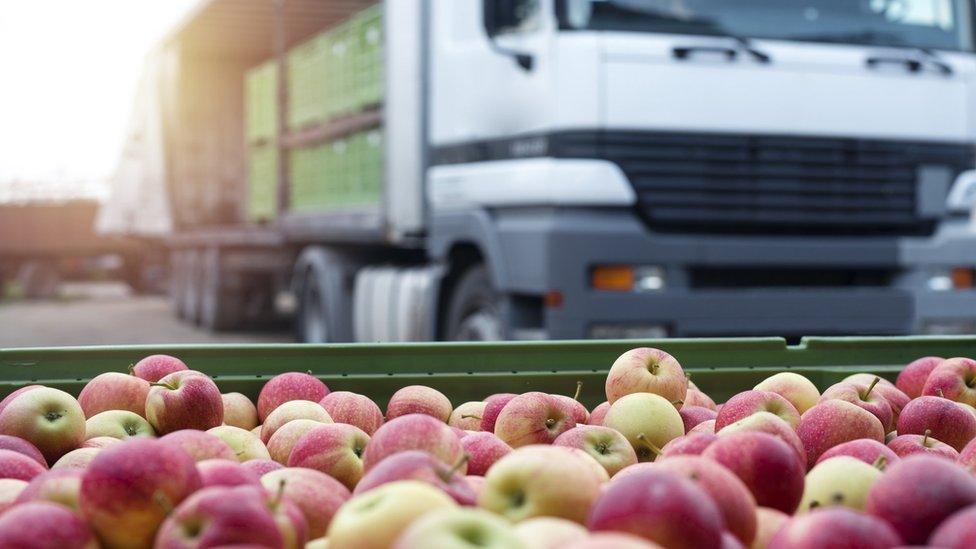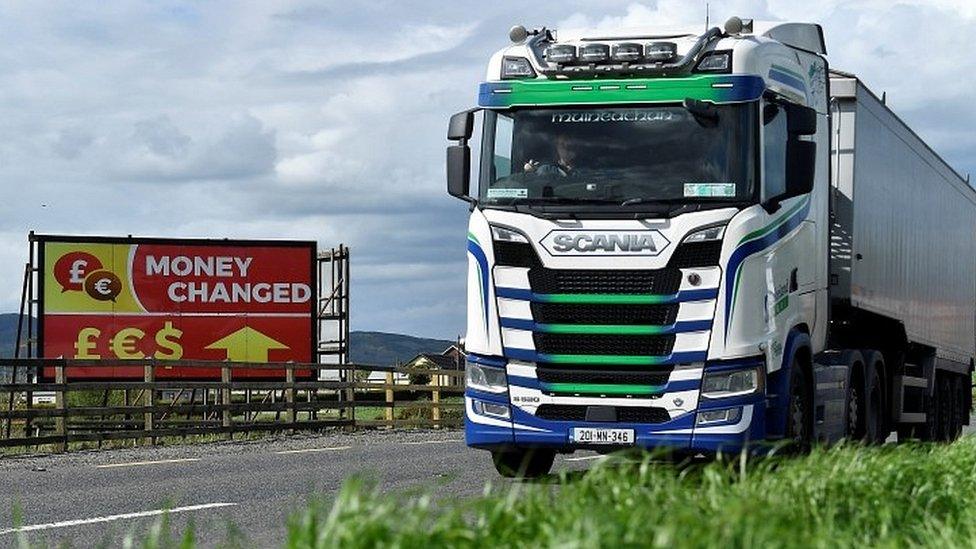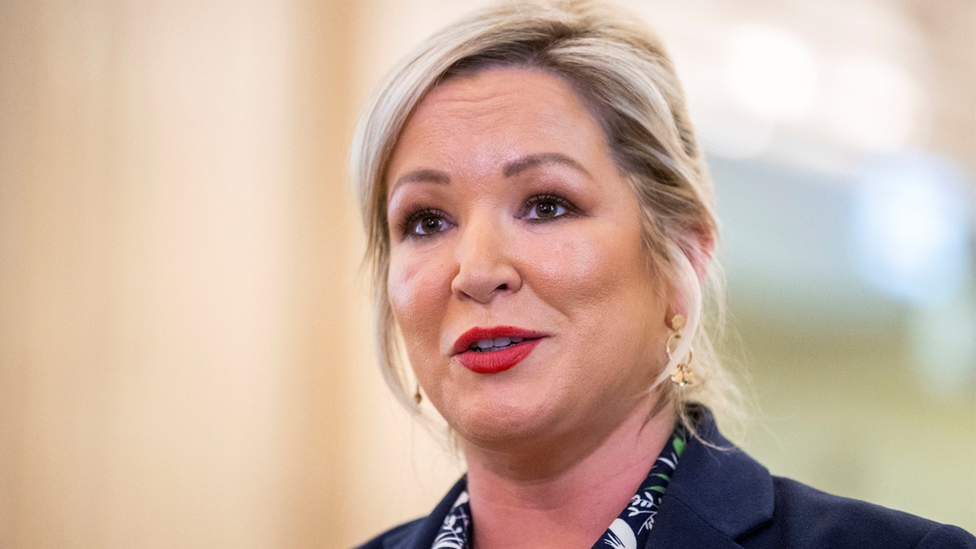NI Protocol: How will government plans affect businesses?
- Published

At the centre of the government's plan to ease the impact on businesses is the concept of green lanes and red lanes for trade.
Goods coming from Great Britain (GB) into Northern Ireland (NI) and which are staying would use the green lane.
This means there would be no checks and paperwork would be minimal.
GB goods moving through NI into Ireland or the wider European Union would use the red lane and continue to be checked at NI ports.
Connoisseurs of Brexit will recognise this concept from an earlier stage in the process.
Back in 2018 Dr Andrew McCormick, the civil servant leading Stormont's Brexit response, wrote a paper , externalwhich considered how it could work.
He has spoken about it to the UK in a Changing Europe think tank, as part of their series of interviews with Brexit players,
He identified three tests of the concept which apply equally today:
Will it facilitate the flow of goods without an unacceptable burden on traders?
Will it provide appropriate management of the risks?
Would it be politically acceptable - especially to unionism?
The UK government has attempted to answer at least the first two of those questions - though not in the text of the bill itself which contains no mention of green lanes or red lanes.
Instead you need to look at the bill's explanatory notes and a separate briefing document., external
The green lane would only require traders to provide "ordinary commercial information" rather than customs declarations and agri-food certificates.
'Trusted trader scheme'
But it would not be a free for all as it would be based on membership of a trusted trader scheme.
The government says this new scheme would require firms to provide "detailed information on their operations and supply chains to support robust audit and compliance work".
Precisely how onerous the qualifications for that scheme would be is not yet clear.
One immediate concern for NI business groups is how GB businesses would engage with such a scheme.
A significant source of difficulty with the protocol has been the unpreparedness of GB suppliers selling into NI.
The government is also proposing that what it calls non-commercial goods, such as post and parcels, will automatically go through the green lane without the need for registration.
Presumably this would include most online shopping purchases but this isn't spelled out.
'Robust penalties'
Aside from the trusted trader scheme, the second level of assurance the government is offering the EU is what it calls "robust data sharing".
It says this would be delivered through a purpose-built IT system with information available in real time and "well within the time taken to cross the Irish Sea".
The third line of assurance is what the government says will be "robust penalties" for businesses who abuse the green lane.
That would include being kicked out of the trusted trader scheme, civil fines and criminal charges.
On Dr McCormick's third point one issue for unionists to consider is that this arrangement would mean NI was still not trading on precisely the same terms as other parts of the UK.
There will be no requirements for a business in Edinburgh to use a trusted trader scheme to sell goods to London or Cardiff. But they would have to take that additional step to get goods to Belfast.
Related topics
- Published13 June 2022

- Published13 June 2022

- Published2 February 2024
